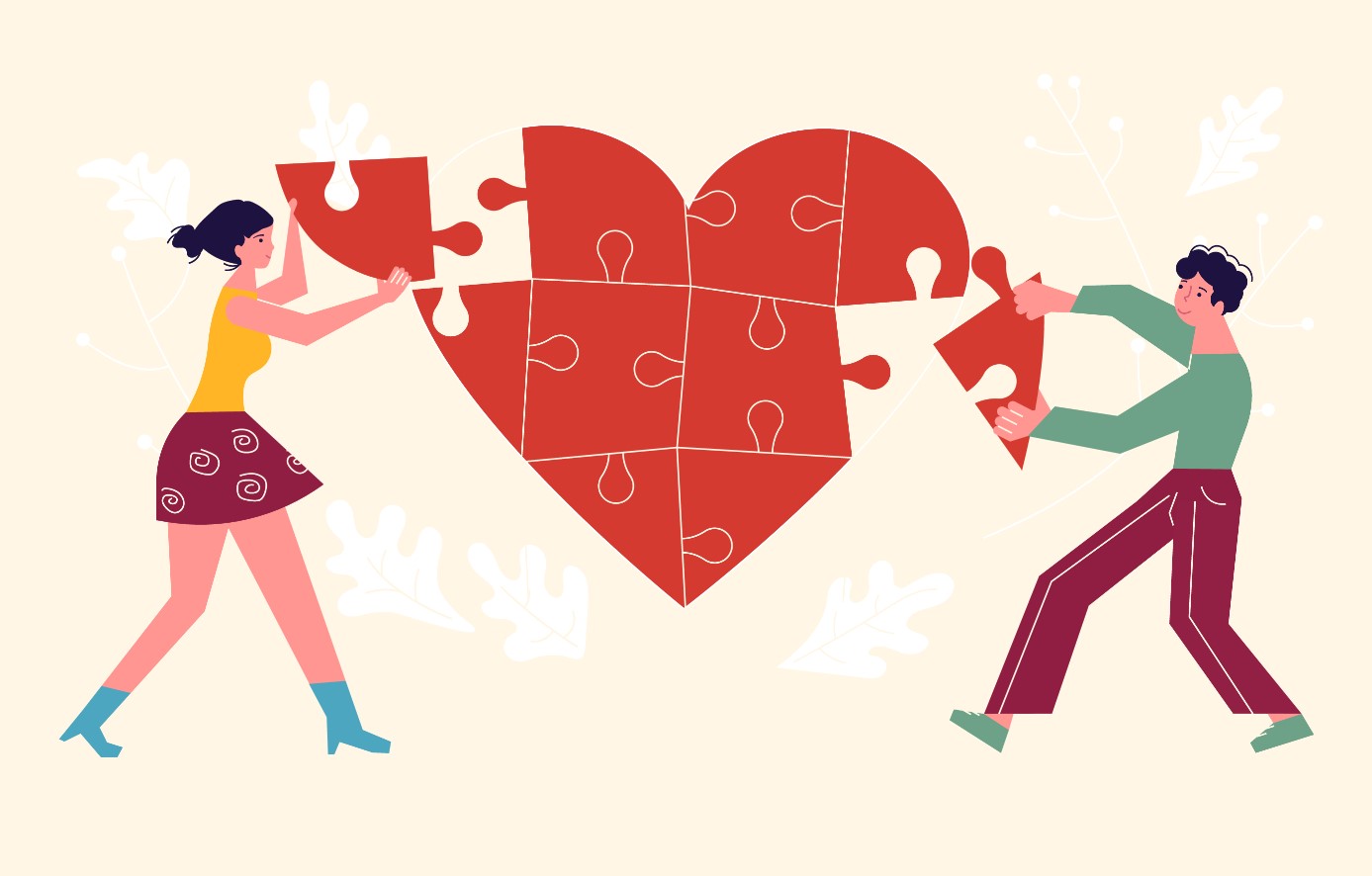Holding the Reins of Jealousy
Jealousy is indeed a cocktail of feelings! First, it is the fear of losing a loved one, that the person important to you may choose someone else. Jealousy is the fear of not being the only one, not being unique to the person you love. But most people don’t show their fear of loss – it’s too risky. Women often think, “What if I tell him about my fear of loss, he chooses someone else. And then fear will be complemented by pain and humiliation.” So instead of fear, jealousy is manifested as anger. Anger and verbal attacks – that’s what’s on the surface.
The more anger and mutual accusations, the more the partner walks away from the conversation, gets defensive, snaps back, and distances himself. When your partner starts to drift away, the flame of jealousy gets even worse and leads to despair since you are losing intimacy in front of your eyes in the relationship, and now the fear of losing is fueled by the growing distance between you. A state of hopelessness and sadness can replace despair. When jealousy leaves no energy to fight for the relationship, one can grow desperate.
And yet, the most important thing behind this cocktail of feelings is love. It’s what makes your chosen one so important, so special. Dozens of potential partners may be in your circle of vision, but you only see him.
Claiming Ownership
Some people claim that jealousy is synonymous with possessiveness. Well, perhaps it is, depending on your perspective. How many people in this world would be willing to share their partner with another? Not too many. And it’s a regular human need to be the special one to your partner. It gives the sense of security in a relationship we all strive for. Jealousy becomes a huge problem when your partner loves you, they won’t even allow cheating in their mind, and you are jealous. You are jealous even though you are the one and only. Then the worm of jealousy destroys love.
Feeling Vulnerable
Jealousy is definitely part of insecurity. But insecurity is not a vice. Insecurity is caused by a traumatic childhood experience, the experience of a failed relationship. Where does one get confidence as an adult if a child feels abandoned and unloved? It inflicts deep wounds if you lose loved ones as a child or even in adulthood. These wounds will develop into a fear of failing in later relationships. If you have been betrayed or cheated on, how can you not fear that it may happen again? It is impossible to get rid of it by wishful thinking, and it requires deep psychological work with the trauma of loss.
Venus & Mars
In essence, female jealousy is not much different from its male counterpart. However, sometimes a woman fears losing her partner because she has to deal with many extra problems. For example, if there are children in the relationship, the care for them will fall on the woman when the relationship ends. In addition, many women are still financially dependent on men, so losing the usual comfort with a man is scary. It, perhaps, makes all the difference. But, in fact, most often at the heart of jealousy is the fear of losing a loved one. After all, losing a loved one brings severe pain no one wants to feel.
Unfounded Jealousy
How to stop being jealous of a man, and where does unfounded jealousy come from? How does one learn to trust? Unwarranted jealousy always stems from the trauma of abandonment, as we have mentioned above. Maybe you were traumatized as a child or an adult – it doesn’t matter. The wound will keep on sending the pain signals. Rational arguments and explanations that there is no reason to be jealous do not help. It takes serious work with a psychologist to deal with this problem. One piece of advice from a specialist for all cases does not exist. Everyone has their own pain, their own trauma. The best approach is family therapy – even better if it is couple therapy done using the EFT (Emotionally Focused Couples Therapy) method. Jealousy is a problem that involves two and is better handled by both partners.
Justified Jealousy
It is only natural you will be jealous if your husband or boyfriend is cheating or has cheated in the past. In this case, the question of “how to stop being jealous” is unnecessary. But what is the right thing to do in this situation? Again, there is no single rule for all cases. If he cheated but realized he was wrong and repented, it makes sense to struggle for this relationship. Unless, of course, you have the willingness and strength to deal with his feelings.
If you are ready to stay in the relationship after the betrayal, it is essential to understand what led to it. Most likely, something went wrong in the relationship. You need to know why he decided to come back to you. Chances are you mean more to him than he thought. Something made him leave, but something made him come back.
To stop jealousy, the man must understand how much he has hurt you. And to do that, you need to tell him how you feel about the cheating. Unfortunately, it does not always succeed because men start making excuses instead of understanding your feelings. He has his own reasons. Therefore, it is better to start such conversations in the office of a family psychologist. A professional will help you express your feelings adequately and help your husband understand what kind of wound is inflicted by an affair. But most importantly, you will deal with the causes of cheating so that this scenario is not repeated in the future.
Stop Being a Victim
If your husband or boyfriend constantly cheats, having solid convictions in favor of such behavior, this is a different conversation. You may hear: “Everyone cheats. This is normal. I am a man,” which, of course, simply couldn’t be farther from the truth. You will never be happy until you acknowledge that you allow someone else to make your life miserable. Only after you come to grips with this simple truth will you be able to either transform the existing relationship radically or be done with it for good, off to seek someone who can nourish your thirst for pure intimacy and trust.
For premium readers








